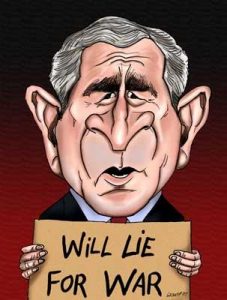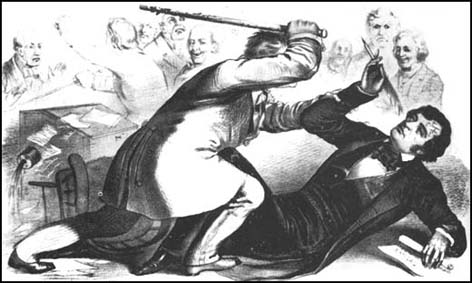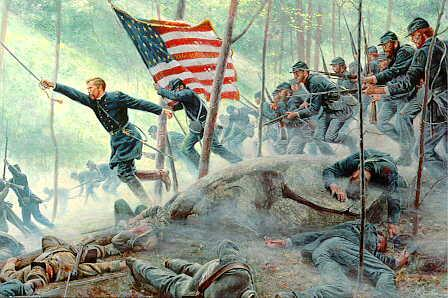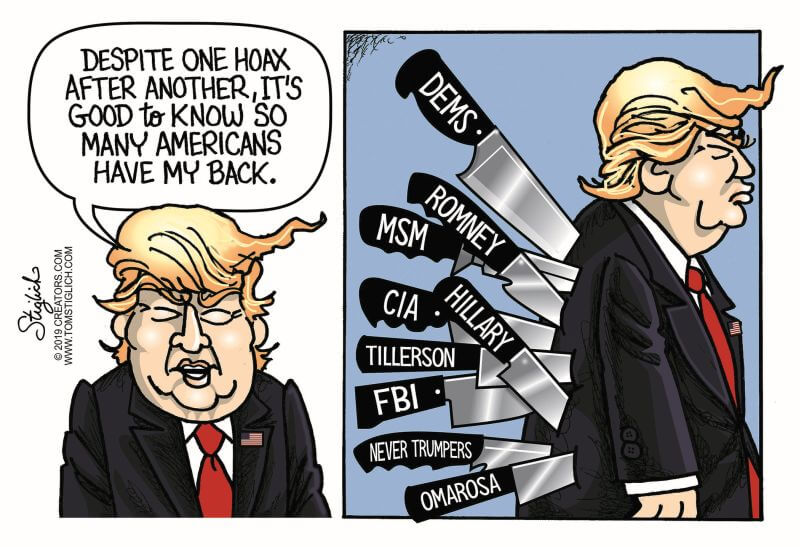Besides enjoying the ambiance at Al’s Coffee Shop, I often stop there to peruse the Washington Post – just to keep in touch with the alternate universe of DC’s “other paper.” I don’t subscribe to the Post, as I can take only limited doses of its unremitting harping on the “Trump is stupid, Trump is evil” theme. Also: “Trump is an idiot; Trump is a Russian spy; Trump is a Nazi; impeach Trump before it’s too late; Republicans are incompetent; Republicans are racists; more government is the answer; only Democrats know how to govern;” etc.
When I am away from the Post for a time, and have kept company with people of the “normal culture,” I begin to think that politics might, after all, be just minor differences of opinion between Americans of good will who want what’s best for the country and its people. I start to believe that our polarization is only skin-deep. Our differences can’t be that serious. We can surely work things out. The present disputes are just a stray blip on the political radar.
But then I return to the Post and some of its opinion-writers, and I realize once again that these people live on another planet, and have been living there for some time. I was reminded of that recently when I reviewed an article which I wrote during the administration of George W. Bush. I had responded to Post columnist Harold Meyerson’s article, “Impeachment Imprudence.” The author had “analyzed” the necessity of (and prospects for) impeaching President Bush – much of it interwoven with semi-jocular references to his mother’s insistence that impeachment was essential. (Mr. Meyerson’s mother was 92 at the time.)
Mr. Meyerson said he had told his mother in 2004 that impeachment was untimely because:
- Mr. Bush might be defeated in the election;
- Grotesque misconduct in office was not necessarily a high crime or misdemeanor;
- Dick Cheney was the real power anyway.
But Mother Meyerson hadn’t bought the arguments and was still pushing the Big I.
Mr. Meyerson breathlessly reported that “this impeachment stuff is really getting around” – describing how it was all over the blogosphere and was the cover story in the current Harper’s. Even the San Francisco Board of Supervisors had passed an impeachment resolution. (My word, had it really gone that far?)
Antiwar activists and civil libertarians also had “growing impeachment tendencies.” (Oh, no kidding?) Even labor unions – Mr. Meyerson’s specialty – were asking, “How can we impeach this guy?” Obviously, It was just a matter of time until the juggernaut reached critical mass.
Assuring his readers that “I bow to no one in my conviction that George W. Bush’s is a malevolent presidency,” Mr. Meyerson accused Mr. Bush’s government of incompetence, dishonesty and treachery at what can only be called a treasonous level. To assure readers that I have not misrepresented Mr. Meyerson’s views, I reproduce his critique in its entirety:
“The leading figures of his administration manipulated facts and fabricated fictions to justify going to war in Iraq. They ignored the intelligence reports that predicted the strife that would follow Saddam Hussein’s ouster, and sent our troops in harm’s way with no plausible strategy for how to handle the violence and with insufficient armor to shield themselves from it. They were missing in action when a great American city and thousands of American citizens needed rescue. This administration has authorized torture, though the United States has signed conventions that forbid it. It has authorized warrantless wiretapping and surveillance, though it is plainly against the law.”

Although some of these charges had been tossed about for months – even years – it was convenient to find all of them packaged in a single paragraph attributable to one person. For this I was indebted to Mr. Meyerson. He suggested that history will find Mr. Bush “…as inept as James Buchanan, on whose watch the Union broke up,” and “as eager to polarize the nation to his political advantage, no matter the costs, as [was] Richard Nixon.”
Mr. M said Mr. Bush’s crimes probably did not rise to impeachment level, but were “merely the kind of thing that lands a president on eternal sizzle in one of Dante’s lower loops.” (Really, he seemed almost theologically certain about this.) His grandest denunciation: “Dereliction of duty and lying us into a war may be mortal sins, but that doesn’t make them provable high crimes.” (I had no idea Mr. Meyerson was so religious.)
As to the “malevolent presidency” – a charge also thrown at Donald Trump – the dictionary defines “malevolent” as “having, showing, or arising from intense, often vicious ill will, spite, or hatred.” This means that Mr. Meyerson believed the Bush Administration was actually motivated by spite and hate – that President Bush and his officials had acted out of vicious ill will.
Where was Mr. Meyerson getting this? From his mother? My own background didn’t prepare me to accuse American leaders of any political stripe of such base motives. Mr. M and I were evidently raised by mothers with vastly different moralities.
My own mother (hey – if Mr. Meyerson can do this, why can’t I?) often spoke of “the pot calling the kettle black.” She meant that some people tend to accuse others of a venality that’s part of their own makeup. They characterize their enemies’ actions and motives in terms that could plausibly apply to themselves. Mr. Meyerson seemed to be doing this. Did he call Mr. Bush hateful and spiteful because he knew he (and possibly his mother) had these attitudes? I don’t know, but I suspect it.
He might also have realized that some “heroes” of the liberal pantheon were less than exemplary characters. A “malevolent presidency?” Would Mr. Meyerson say this of the hallowed Franklin Roosevelt who “ignored” early warnings of the Pearl Harbor attack, threw Japanese civilians into concentration camps, bombed Germany to rubble, and refused to negotiate when the Axis would have stopped fighting? How about Harry Truman vaporizing two Japanese cities with atomic bombs and later intervening in a Korean “civil war.” (Was it really our business?) Or LBJ using the Bay of Tonkin “incident” (which probably didn’t even happen) as a pretext for getting us into a war in Vietnam that cost 50,000 lives – just to let him strike a warrior-pose.
And speaking of “spiteful” – who was so mad at a celebrated aviator for opposing American intervention in Europe that he denied him a military commission? Yes, that was also the sainted FDR. Charles Lindbergh actually flew 50 combat missions over the Pacific as a civilian “test pilot” because FDR spitefully refused to commission him.
In his Bush-bashing, Mr. Meyerson also employed a classic ploy pioneered by the brilliant political tactician, Josef Goebbels. It is called The Big Lie. Dr. Goebbels realized that in the age of mass communication any lie, however huge, could be made believable to some segment of the population if it is repeated often and loudly enough. Stalin, Hitler, Mao, Pol Pot, Castro, and a long list of other tyrants have used the Big Lie to great advantage.

By employing it against George W in 2006, Democrats have become Hitler’s spiritual heirs. Their incessant mantra, “Bush lied! Bush lied! Bush lied!” – although unsupported by plausible evidence – implanted the idea of presidential dishonesty firmly in the consciousness of the American body politic. Ignorant mall-rats, busy thirty-somethings, union workers, soccer-moms and nonagenarians – e.g., Frau Meyerson – bought the story that the president had “lied” us into war with Iraq. Mr. Meyerson and other partisans cheerfully admitted that Bush-hatred had become a significant political factor. They believed they could exploit it, and in the short term they were correct. Call it Act II of the Strategy of Hate.
To find Act I we must go back to pre-Civil War days when decades of preaching hate in both North and South finally split the nation. In 1856 Representative Preston Brooks caned Senator Charles Sumner into unconsciousness in the Senate chamber over Mr. Sumner’s personal insults of Brooks’ kinsman, Senator Andrew Butler. Open violence broke out in “Bleeding Kansas” between slavers and abolitionists, during the same decade. Finally, eleven states seceded and a bloody, nation-wide civil war erupted, costing us 600,000 lives and culminating in Mr. Lincoln’s death. We’re not quite there, today, but how far off can this or its like be in the present climate?

Despite its occasional successes, I believe hate is a strategic loser for a political party. Americans have never responded well to it, and I don’t believe they will now. All the hateful rhetoric Democrats spewed at Mr. Trump in 2016 did not cause voters to run to the polls to elect Hillary Clinton. Instead, they embraced Mr. Trump’s optimistic invitation for all Americans to join him in a mighty effort to restore the country to greatness.
Eleven months hence, millions of Americans now enjoying an era of unprecedented prosperity will make a historic choice:
- Bestow a second term on the man who enabled that prosperity; or
- Accept Democrats’ invitation to join Act III of their ongoing campaign of hate and disuinity.
Which way we choose will indicate whether we have the collective wit and wisdom to remain a free people who can govern ourselves, accept the electoral verdict of The People, and live together in mutual comity. These are perilous times.
“…not once in a century are men permitted to bear such responsibility for freedom and justice, for God and humanity, as are now placed upon you...” (Theodore Gerrish, 20th Maine; Gettysburg, 1863)


